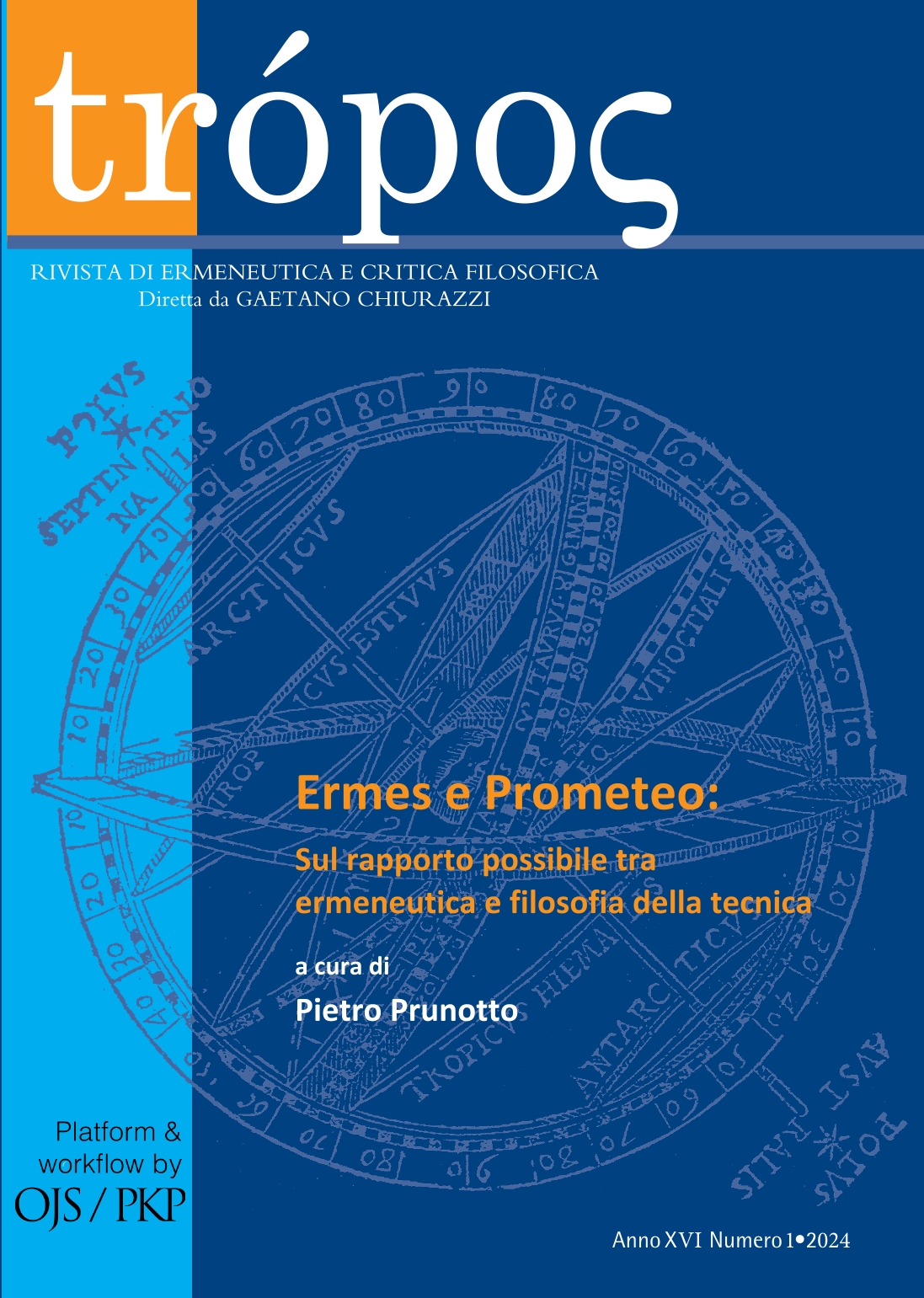Ermeneutica dell'umano, ovvero la tecnica
DOI:
https://doi.org/10.13135/2036-542X/11052Abstract
Starting from some categories of Bernard Stiegler's thought and drawing on some passages from the book Technics and Time 1: The Fault of Epimetheus, this contribution aims to address the question of the relationship between the human and technology as an original and hermeneutic relationship, capable of deciphering the unique characteristics of these two actors. Two focal points form the basis of the reasoning: Stiegler's interpretation of technology as "the unthought" by philosophy and the assertion that the question of the human is poorly posed, because the human as such does not exist; rather, we speak of the non-inhuman. If hermeneutics is the possibility of questioning the meaning of a trace (written, oral, embodied, digital...), that is, of unveiling its essence by giving it meaning, this work seeks to show how, in Stiegler's framework, this unveiling operation is what makes technology human and the human technological, in a lack of clear boundaries that allows for the expression of the hermeneutic aspect of the human, which is to say, technology in the dual meaning hypothesized.



